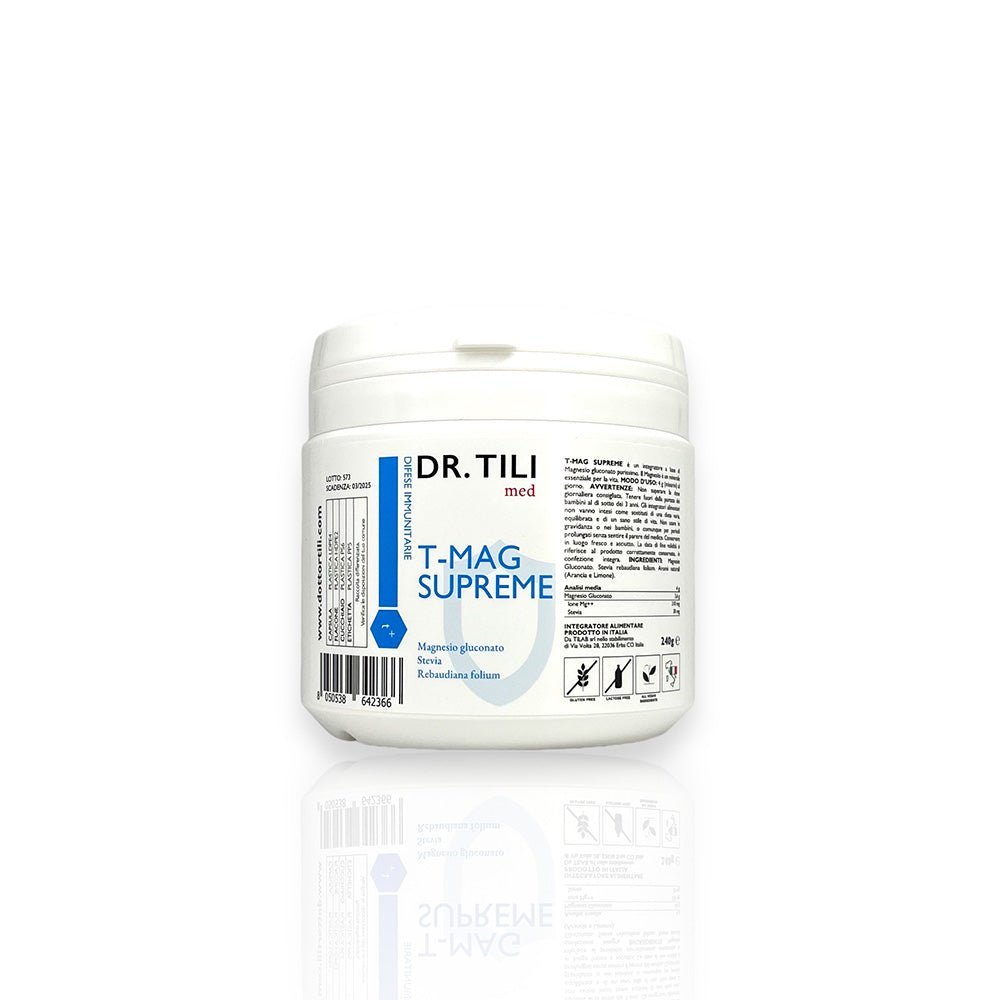
Magnesium Gluconate
Magnesium gluconate contributes greatly to normal energy metabolism and the normal function of muscles and the nervous system. Even in the absence of obvious deficiencies, magnesium gluconate is often used by athletes as an adjuvant for increase strength, endurance, musculoskeletal system efficiency and protein synthesis .
Let's find out the differences between magnesium and magnesium gluconate, also called bioavailable magnesium, and their benefits.
Benefits of Magnesium
Energy and health for bones and muscles
Magnesium is a mineral of fundamental importance for our health. The human body contains about 25 grams, located in the bones, muscles, brain and other organs such as the liver and kidneys. The action of magnesium is fundamental for:
- The success of over 300 enzymatic reactions in the body, including glycolysis, the Krebs cycle, creatine phosphate formation, nucleic acid synthesis, amino acid activation, and cyclic AMP formation.
- The proper functioning of the cardiovascular system, because it helps improve the contraction of the heart muscle
- Good health of the nervous system, muscle activity and muscle-brain coordination.
- Fixation of calcium in bones and formation of tooth enamel
A magnesium deficiency It can manifest itself with general malaise, tiredness, nausea, loss of appetite, weakness And muscle cramps .
Difference between magnesium and magnesium gluconate
Organic magnesium and inorganic magnesium
Magnesium gluconate is a type of magnesium called organic, that is, bound to a molecule of organic origin that facilitates and maximizes absorption .
The body's ability to assimilate a certain nutrient is defined as bioavailability . This is the extent to which the body can absorb that nutrient and use it for its physiological functions. Our body's bioavailability for each nutrient can depend on many factors such as: age, sex, presence of other associated nutrients, characteristics of the intestinal microflora, nutritional status of the organism, etc.
In particular for mineral salts, the presence of other nutrients is essential to maximize their assimilation by our body . The case of magnesium is the best known, because it must always be associated with another nutrient to be absorbed at its best by the body. In technical language, the weak bond that is created between magnesium and the associated molecule is called an 'ionic bond'. These molecules that can accompany magnesium facilitate or hinder its absorption by the intestine.
There are different types of magnesium salts, which can be distinguished into organic and inorganic magnesium salts . Organic magnesium salts are those whose magnesium is accompanied by a molecule containing carbon: magnesium gluconate, citrate, lactate, etc. These molecules are already found in living beings. Conversely, an inorganic magnesium is associated with elements other than carbon: magnesium oxide, hydroxide, sulphate. These molecules are much more present in the earth and rocks.
The best Magnesium for sports
Which is better: organic magnesium or inorganic magnesium?
Research has amply demonstrated that Inorganic magnesiums are those with the lowest bioavailability . This is due to their low solubility, that is, their poor ability to dissolve in water.
This is a necessary prerequisite for better absorption in the intestine. So by taking inorganic magnesium, only a small part is absorbed. and enters the blood. Unabsorbed magnesium remains in the lumen of the intestine, with possible laxative effects .
The magnesium salts with the greatest absorption are the organic ones, such as magnesium gluconate.
It is not clear which organic magnesium is best, but it is known that Magnesium gluconate has a high absorption, improves bioavailability and reduces the risk of laxative effects .






















